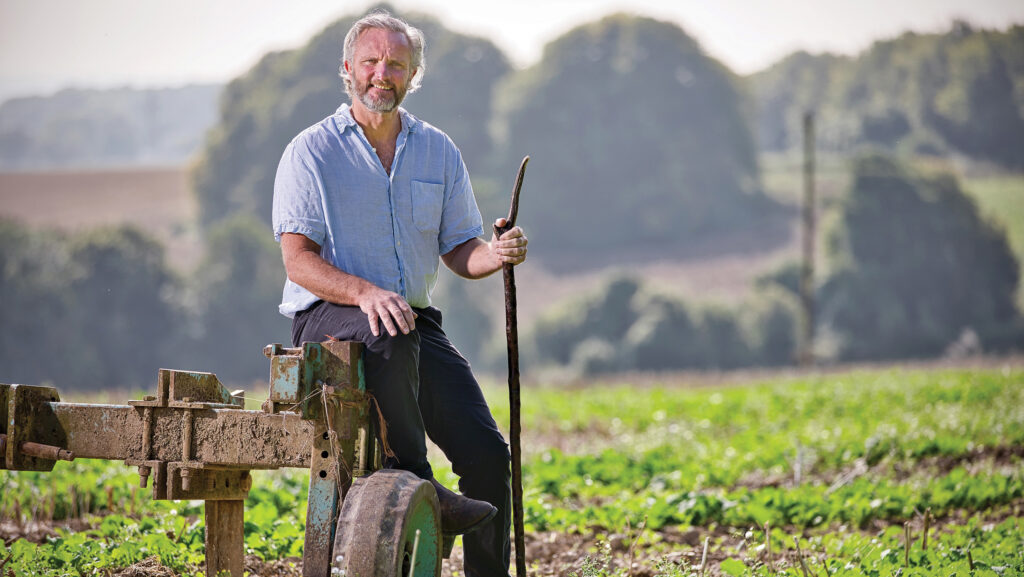Farmers Weekly Awards 2024: Game Changer of the Year
 © Richard Stanton
© Richard Stanton Rob Shepherd from Hampshire, an eco-system service provider, is the Farmers Weekly Game Changer of the Year 2024.
In an age when society demands ever more from farmers, Rob is helping to ensure growers and livestock producers are fairly rewarded for looking after the environment – as well for producing food.
See also: About Game Changers
Rob chairs the Environmental Farmers Group (EFG) – a farmer-owned business that brings farmers together in cluster groups to secure the best financial returns and environmental results by providing eco-system services on a landscape scale.
Working closely with Teresa Dent of the Game and Wildlife Conservation Trust, in 2013 Rob became the lead farmer of the UK’s first cluster group.
The group involves farmers across 2,500ha of the Avon catchment in Hampshire and Wiltshire.
Farmer-led
“We all agreed that we wanted to determine our own destiny,” he says.
“Our experience was that diktats from on high don’t really work the same across different landscapes. We wanted a less prescriptive approach to conservation – something more farmer-led.”
Rather than being told what to do, the group opted to decide its own priorities and choose which species to encourage.
More like-minded farmers formed their own clusters in the area, and then joined forces to form the Martin Down Super Cluster, encompassing 7,500ha.
Similar groups followed.
Rob and Teresa then worked together to see if they could build a commercial solution, to maximise the good work farmer clusters are doing.
This led to the creation of the EFG, which works alongside the cluster model, scaling up the collaborative work done on farms, then targeting a mix of private and public funding – including the Environmental Land Management scheme.
So far, more than 560 farmers have joined the EFG, working in regional groups to reverse biodiversity loss, deliver clean water and sequester carbon across more than 267,000ha – equivalent to 3% of England’s farmland.
Local benefits
Working in groups has big benefits.
It means each cluster can tailor the eco-system services it provides and the environmental benefit it delivers to the local area it serves – in the way best suited to the farmers involved.
With farm support changing, natural capital will become an increasingly important revenue stream.
So too will be attracting corporate investment, which is easier when farmers work together.
“What better vision can there be for farmers than unlocking private money to pay for conservation, get guaranteed conservation outcomes in return and not bother the taxpayer?”

